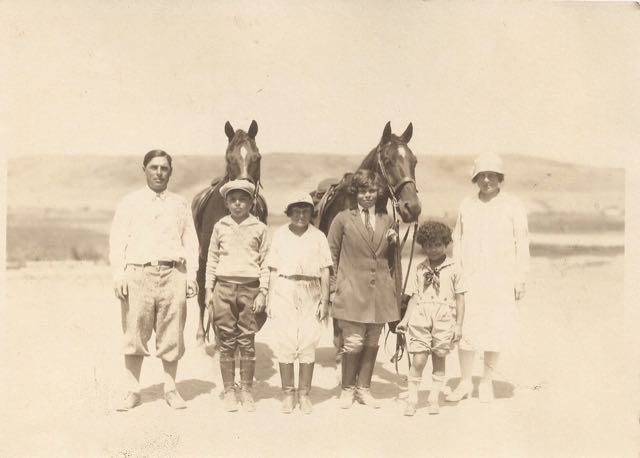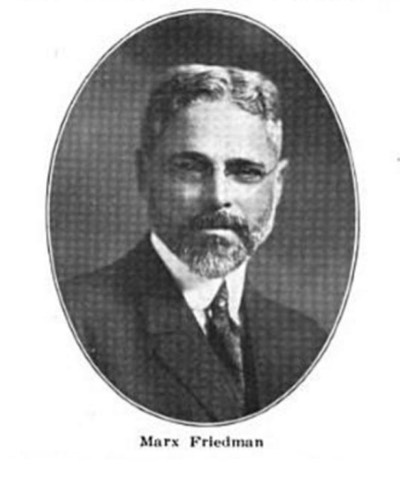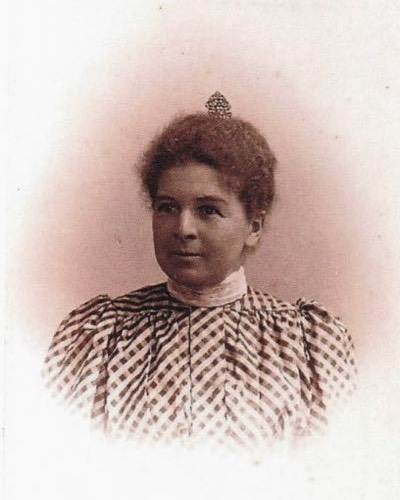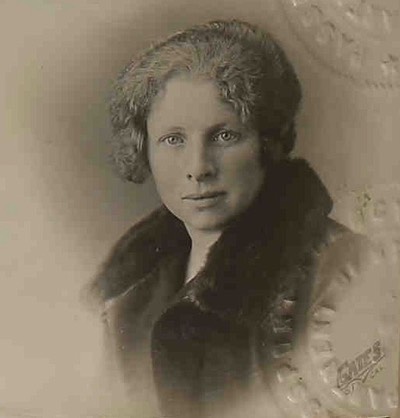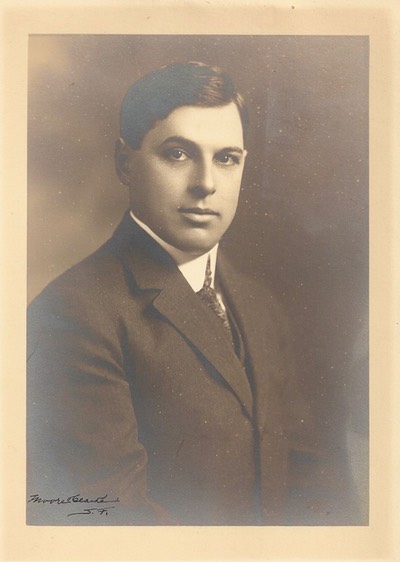In April of 1984 your Grandma Fran received a note of congratulations from my uncle, Milt Silverman, on the birth of her first grandchild, Tamiko. He wrote, “Dear Franny, Hurray for the arrival of small granddaughter. May you have much joy with her. It’s my feeling that as wonderful as children may be, grandchildren are wonderful-er.”
Truer words were never written by my uncle, my cousin Rick’s dad. Milt Silverman was married to Grandpa Milt’s sister, my aunt Margie. In a single line below the congratulatory note he wrote “The attached may amuse you and interest Dave and Lisa. Best, Milt.” The additional documents he sent included the Friedman family tree with descriptions. Astoundingly, the first line of the tree contained our long-lost family name from the old world: Sacherwalski.
According to the documents Max Sacherwalski (Friedman) married Anna Schulmsky. They had eight children including: Isadore, Samuel, Henry, Celia, Abraham, Lillian, Etta and Dorothy. Henry Friedman was Grandpa’s Milt’s father, my grandfather. Attached to the family tree, my Uncle Milt provided a description of the Friedman branch explaining that, “Max Sacherwalski and Anna Schumsky both born in Poland, emigrated to the U. S. -- at Ellis Island, Max was reportedly told by an immigration official that he would not get far in America unless he had a simpler “American” name -- Max looked out the window, spotted an advertisement under the name of Friedman, and selected Friedman as his own name.”
There it was, not only did my Uncle Milt retell the original story of how we got our new American name Friedman, but he also revealed our long lost Polish name, apparently Sacherwalski.
Now you may be wondering if this note with our Old-World name was sent in 1984, why didn’t I share it with the family? I have no good defense, other than in my excitement over the birth of Tamiko, I put this crucial document in a box, forgetting about it for the last thirty-three years. (And as you might remember this has not been the first crucial piece of family history I have lost. But let us not dwell on negatives.)
Instead, in my recent attempts at family history, Searching for Friedmans and Newmans and Marx Friedman Revealed, I reported that our name was lost as Max entered the US. I wrote, “According to family lore, he stepped off the boat from Eastern Europe, saw the Friedman Cracker Company sign and swapped his difficult to pronounce Jewish name for the advertisement, our family name lost forever.”
I am happy to report that Tamiko and Miya found the box providing our missing name. So, while I buried the note and family tree with our old-world name long ago, it has been rediscovered (proving that the sins of the father have not been visited on the daughters.)
What was equally moving to the short, poignant note type written by my Uncle Milt, was the handwritten note written to me by my mom in her large cursive. She wrote at the bottom of Uncle Milt’s letter in 1984, “Dave -- Share this with Lisa, and I think you both should write him a thank you ‘cause he was thinking of you.” (My mom’s request was always that we write a thank you note. Undoubtedly, your aunt Lisa made Grandma Fran proud in this regard. Me, not so much.) She added, “From Max Sacherwalski to Tamiko Kawakami Forrest-- isn’t it great how the world turns. By the way never heard that Sacherwalski name before-- wonder where he found it!”
Sadly, it was many years too late for me to write a thank you note to my Uncle Milt, who passed away in 1997. Nevertheless, I decided to honor my mom’s request that I share the letter and its contents with Lisa, albeit in 2017 rather than 1984. So, it was up to Sonoma I went, letter, family tree and our newly retrieved Old-World name in hand. I was only thirty-three years late in sharing the letter’s contents with my sister. (Mom, forgive me.)
Auntie Lisa looked over the letter and family tree, and like me, the name Sacherwalski did not ring a bell. In addition, it was clear from Grandma Fran’s response that our mom hadn’t heard the name either during all those years married to Grandpa Milt. We wondered, where Milt Silverman had found or heard the name?
It was too late to ask our uncle where he learned about our name, Sacherwalski. However, one thing I was sure of: Milton Silverman could be counted on to pass along accurate information. According to the family tree he sent, he was born in San Francisco 1910. He described himself as a “pharmacologist, newspaper and magazine reporter, US Government official, university faculty and book author.” Rick’s dad was an intellectual and a professional journalist. If he said Sacherwalski was the old country name, he didn’t make it up.
What Auntie Lisa did remember about our family of Jewish immigrants from the Russian Pale is that many of them came without much money or education. They worked incredibly hard, like Marx Friedman and Sam and Philip Newman, trying and failing at businesses for many decades before finally becoming successful furniture magnates in San Francisco at the turn of the 20th century. For example, our grandfather, Frank Newman, only had a 6th grade education. Marx Friedman left Russian Poland alone, coming to the US in 1870 at age 20. Like so many immigrants today, our family ancestors did not come with wealth but they had drive, smarts, and determination.
However, there was one privileged exception in our Jewish family lineage, and that was my grandmother Helen Eisner, who married my grandfather, Henry Friedman. Uncle Milt traced the family tree of the Reinsteins and the Eisners. According to his letter, Helen Eisner, whom we called “Nanny Helen,” was born in 1889 to Lena Reinstein and Milton Eisner. Lena Reinstein was born in 1862. He says,” No information available of parents of Reinstein children except that both were presumably born in Germany, and came to the U.S. and lived first in Virginia City, Nevada, and Visalia California.”
Helen Eisner’s grandparents were German speaking Jews, part of an earlier wave of Jewish immigration to California which included Bay Area household names like Levi Strauss. These Jewish immigrants came during the Gold Rush, fleeing Europe’s bigotry and establishing lucrative businesses when California first became a state. The Reinsteins came from Posen, Prussia. Helen Eisner’s mother, Lena, was a colorful character. According to Uncle Milt,” Lena Reinstein (Muzzy), born in Visalia, married her brother’s law partner Milton Eisner. Far ahead of her times, she was a teacher, a cooking expert, a cigar-smoking supporter of the arts, a close friend of such people as Gertrude Stein and Alice B. Toklas, Isadora and Morris Duncan, Ruth St. Denis and Ted Shawn. She guided the education of her daughter, Helen. When Lena learned she was dying from cancer, she took Helen for a final visit to Europe and then across Russia and Siberia on the Trans Siberian Express.”
Helen Eisner’s father was Milton Eisner, Sr. He was, “a member of a family of Bohemian immigrants. Eisner was close to Jesse Steinhart (of Steinhart Aquarium fame), romantic man-about-town.”
My Nanny Helen died when I was nine. I only have a few memories of her, save several trips to her peninsula home. My mom thought that I had her light coloring, blue eyes, and blond hair. The photos I have seen of Helen as a beautiful young woman reminds me of our Jamie Lynn, although Jamie may well have inherited her blue eyes and strawberry blonde hair from her McKellogg side. Who knows? Uncle Milt wrote of my grandmother, “Helen Eisner -- lady in the charming “grande dame” tradition. Finishing school education in the U.S. and Europe. Married Henry Friedman; although both had grown up in San Francisco, met for the first time in Paris. Continued her mother’s support of the arts.”
Nanny Helen’s uncle, Jacob Bert Reinstein, was a “Member of the first class to graduate from the University California in Berkeley -1873. Studied law, coached by his father. Passed bar examination, became personal attorney for Phoebe Apperson Hearst, mother of publisher William Randolph Hearst. Appointed member of the UC. Board of Regents in 1895…. Was influential in planning future development of U.C. campus ….and in designing the Greek Theater at U.C.” (So, Go Bears!)
Our family has its roots in two waves of Jewish immigration, the first from German speaking Europe and the second from the Russian Pale which included towns now in Lithuania, Poland, and Belarus. Our German speaking ancestors, the Reinsteins and Eisners, came first in the 1850’s and were more highly educated and well-to-do. Our Russian ancestors came in the 1870’s and worked hard for three decades to catch up. And catch up they did, both on the Newman and the Friedman sides.
According to Uncle Milt’s narrative, confirmed by my recent research, “Max and Anna settled first in Troy, N.Y. where their first two children, Isadore and Samuel, were born.” In addition, he has provided some interesting new details of Max’s journey and new life in San Francisco, writing, “To seek his fortune, Max went alone to San Francisco, crossing the Isthmus of Panama. He later sent for Anna and the two children, who came to San Francisco, where their other children were born and raised. Henry was the first child to be born in S. F.” Milt Silverman wrote:
At first in San Francisco, Max Friedman made a precarious living by selling furniture from a pushcart. After some years, he went to a well-to-do acquaintance (They had probably met at Temple) and said he could do much better if he could rent a store, but unfortunately, he didn’t have enough -- I think he needed $500 for openers -- to get started, and didn’t have enough assets to borrow money from a bank.
The well-heeled San Franciscan agreed to bankroll Friedman, without collateral and without interest. The loan was paid on time and in full. The man who loaned the money was my grand-uncle, Moritz Silverman.
The Friedman store -- M. Friedman & Co. -- eventually became the biggest on the West Coast. It was nominally managed by Henry Friedman. When it went out of business -- just before the 1929 crash -- many of the salesman working there decided to open their own furniture businesses, many of which have survived until today…
And there you have it. By the time Henry Friedman met Helen Eisner in Paris both sides of our family were well-to-do and well educated. Henry Friedman attended Stanford, graduating in 1901 before working at his father’s furniture store. He married Helen Eisner in 1910. They had four children: Margaret (1912 -1993), Milton (1914 -1991), Virginia (1915 - 1980), and Beatrice (1919 - 1997).
Many immigrants shed their old-world names, adopting new names or new versions and spellings of old names when they entered the US. What still stumps me is how Max managed to convince his parents and siblings to trade Sacherwalski for Friedman. Max came first. He was a Friedman in the Troy, N.Y. directories in the 1870’s, as were his brothers and sisters who followed. His parents immigrated in 1879, and according to the ship’s manifest, they traveled as Louis and Cyril Friedman.
When I saw the Sacherwalski name in Uncle Milt’s family tree, I googled it (because the Internet knows everything, obviously.) In return I got, “Your search - Sacherwalski - did not match any names.” Then I tried Ancestry.com. No matching names either. Finally, I tried Sacherwalski in the JewishGen database, a website designed for descendants of eastern European Jews. Nothing in this search engine either when I tried a letter or phonetic search. Perhaps this was not surprising since old world Jewish names were often written in Hebrew or Russian, -- languages without a Roman alphabet. A “fuzzy” match on the same website provided variations on Sacherwalski, such as: Suchowolski, Schwabski, Sawierzanski … well, you get the idea.
It will be up to my smarter children and grandchildren to see if they can find Sacherwalskis or our Friedmans in the old 19th century records from Eastern Europe. I’ll let them settle the debate at a future time.
What is of consequence in our story is not the changing of names, from Sacherwalski to Friedman to Forrest, but the adding of names to our family tree. If Grandma Fran, then a Leonard, enjoyed thinking about the changing of names from Sacherwalski to her first granddaughter, Tamiko Kawakami Forrest, think how she would delight in the names of her great grandchildren: Daisuke and Emiko Ramírez and Nate, Abbey, and Andrew O’Berg, and Saya Spells. And who can imagine our clan without the surnames of Leonard or McKellogg or Tremblay?
My dad, Jim Leonard, taught us that what binds a family together is love, not surnames, blood, or biology. Therefore, we delight in adding new names to our big, beautiful, American family. And I am sure that Max would approve.
DF - 2017 and Revision 2019
